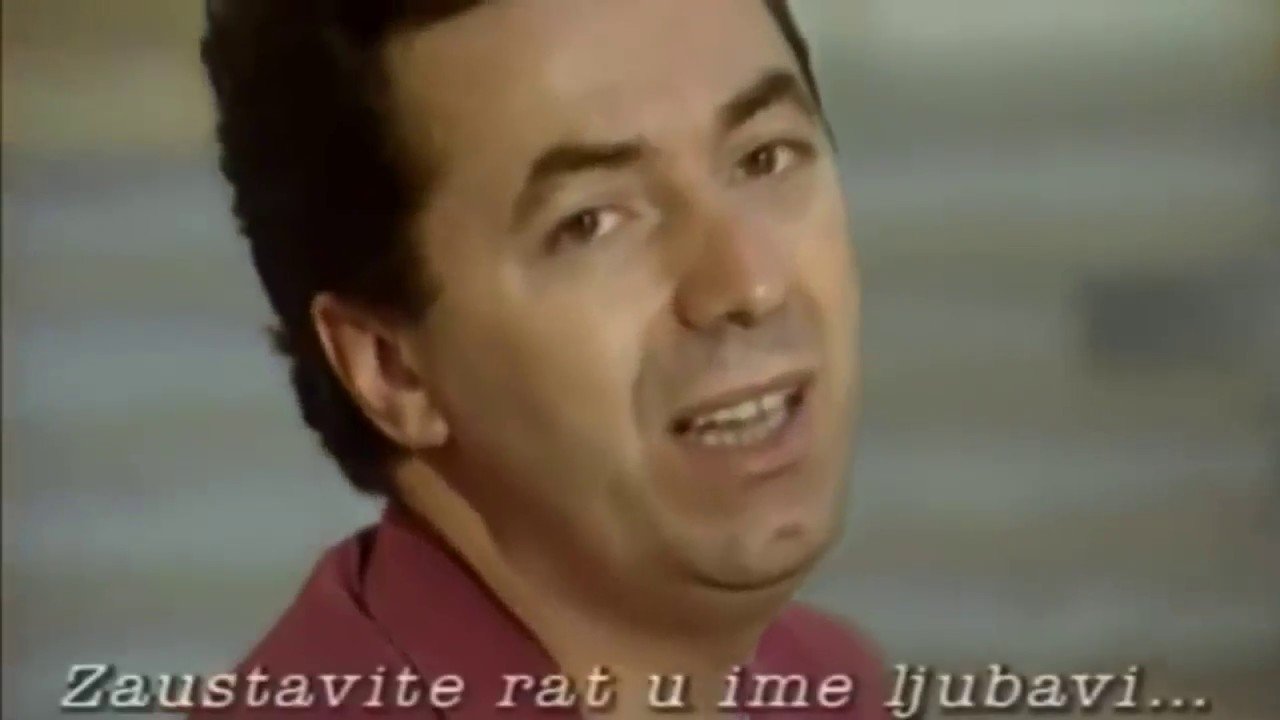On 12 August 1991, Tomislav Ivčić’s song “Stop the War in Croatia” premiered on Croatian Television.
After the video’ debut, it was quickly broadcast throughout the world by prominent television stations such as the BBC and CNN. In addition to the song, Ivčić also initiated a humanitarian action by the same name in order to assist his Croatian homeland which was under attack. Similar efforts by popular Croatian artists and athletes soon followed and the message “Stop the War” was echoed by Croats across the globe. Their efforts gradually changed international public opinion to realize that Croatia was waging a defensive war to gain its freedom. This ultimately led to recognition of Croatian independence by the international community.
The song actually had very simple origins. While many others who later wrote songs frolicked in the Adriatic sea, I lived in Zagreb worried, shocked, without any will to rejoice and felt it was my duty as an artist to create something.
Tomislav Ivčić
Tomislav Ivčić was born in Zadar, a city that remained his muse and eternal inspiration throughout his life. He was an amateur musician in his youth and after he completed his education in his hometown, Ivčić moved to Zagreb where he began his professional career. His involvement as a student in the mass protests during the “Croatian Spring” movement in 1971 led to his rejection and exclusion from many music festivals but Ivčić nevertheless soon became one of the most popular singers and composers in the former Yugoslavia. His numerous hits, mostly inspired by Dalmatian folklore, are still very popular on radio stations to this day.
In 1988, Tomislav Ivčić released Medjugorje in Song, which was the first record of religious songs released in communist Yugoslavia. With the collapse of communism and arrival of democratic changes, he also became politically active as a member of the Croatian Democratic Union. Ivčić reached the peak of his music career with the release of the album Stop the War in Croatia in 1991 for which he composed and performed songs with patriotic themes. The title song, with its message of peace and love, captured the attention of the entire world and opened its eyes to Croatia’s plight. Ivčić was elected to public office in February of 1993 but tragically died along with three other people in a motor vehicle accident on 4 March 1993.
Graduated with a Master’s Degree in History from the University of Zagreb. He has worked at the Croatian History Museum and as a researcher for the popular TV Calendar program for Croatian Radio and Television. He has authored several books and documentaries about Croatia’s Homeland War and is the creator/producer of the immensely popular “It Happened on this Day – Homeland War” Facebook page as well as the online portal Domovinskirat.hr. Borna also is the host and editor of the daily segment “Patriotic Minutes” on Croatian Catholic Radio. He created CroHis to promote the values of the Homeland War and ensure that the sacrifices of those who defended Croatia’s independence would not be forgotten.

